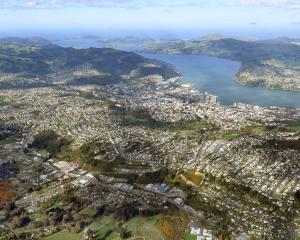A single appeal which has stalled the development of hundreds of new homes across Dunedin has been resolved, the Dunedin City Council says.
Council city development manager Anna Johnson confirmed to the Otago Daily Times that the changes agreed by all parties — and signed off by the Environment Court — had resolved an appeal by Dunedin man Anthony Parata.
Mr Parata had lodged his appeal against aspects of the council’s second-generation district plan (2GP) earlier this year.
He argued new developments in the city should only be allowed to proceed when they were supported by comprehensive engineering and funding studies.
The aim was to ensure existing infrastructure within the surrounding area was not compromised by new development.
Mr Parata’s appeal was among more than 80 filed against the 2GP, which set new rules to guide the city’s development, after it was released last December.
Dr Johnson said the resolution of Mr Parata’s appeal was the first change agreed to as part of efforts to resolve the appeals.
The Environment Court had been asked to prioritise those appeals relating to housing capacity in Dunedin to help address a housing shortfall in the city.
A housing capacity report had earlier found the city would be 1000 houses short by 2028 if more land was not made available for development.
While Mr Parata’s appeal was live, changes designed to encourage the development of new housing areas, and more intensive housing in some existing residential areas, were effectively on hold.
The changes introduced by the 2GP were not considered while the appeal was unresolved, meaning the older — and more restrictive — operative district plan still applied.
"This meant ... the development opportunities enabled by the 2GP could not be realised without a potentially complex consent process."
That affected about 2600 sites — zoned for general or rural residential development by the 2GP — across the city, council resource consents manager Alan Worthington said in an affidavit to the court.
Since August 1, there had also been more than 30 planning inquiries related to sites where development was affected by Mr Parata’s appeal.
Also, four resource consent applications for residential development were suspended, awaiting resolution of the appeal. All were non-complying activities under the operative district plan, requiring a costly, time-consuming public notification process, but not under the 2GP.
"Resolving the appeal was a priority for council because of the anticipated development that was waiting for the operative plan provisions to become redundant," Dr Johnson said.
The changes agreed between parties, to address Mr Parata’s concerns, included only "minor" changes to a policy and assessment guidance.
"There were no changes to the type of activities, density or performance standards that apply in these zones," she said.












